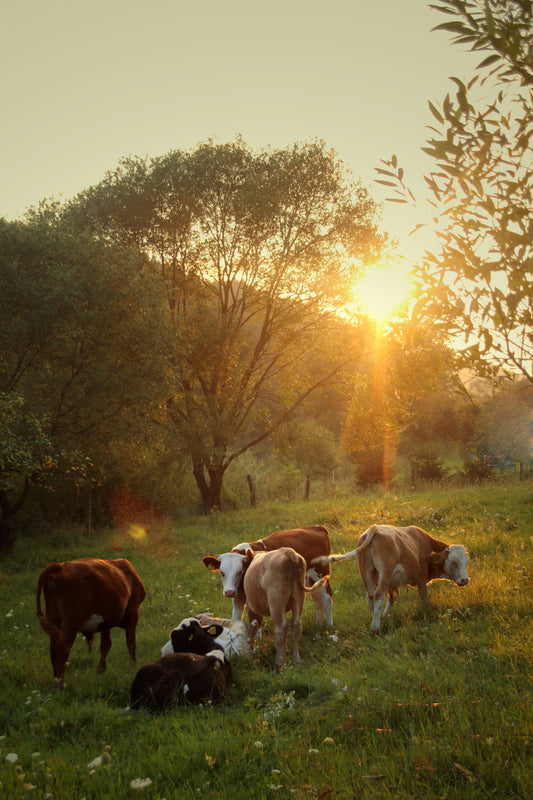Thank you for that article an answer to what I have wanted to know for a while. The table-format summary is especially helpful to re-cap and remember.
Marinades or Dry Rubs? What's Best For Your BBQ?

When BBQ season hits, the age-old question returns to the grill: marinade or dry rub? Both techniques promise bold flavour and juicy results, but they work in fundamentally different ways — and each brings something unique to the table. At The Organic Butchery, we’re all about helping you get the very best from your organic meat, so let’s break down the differences, benefits, and how to decide what’s right for your BBQ.
What is a Marinade?
A marinade is a flavourful liquid blend — typically made with an acid (like vinegar, citrus juice, or wine), oil, herbs, spices, and sometimes sweeteners like honey or sugar. The purpose? To tenderise and infuse meat with flavour from the inside out.
Best For:
-
Chicken: especially thighs and breasts
-
Pork: particularly shoulder, ribs or chops
-
Lamb: leg or shoulder cuts
-
Beef cuts: like skirt, flank, or bavette
Benefits:
-
Helps tenderise tougher cuts
-
Deep flavour penetration (with time)
-
Moisturises lean meats
-
Adds complexity and aroma
Pro Tip:
Always marinate in the fridge, and allow at least 1–4 hours (or overnight for a deeper infusion). Pat your meat dry before grilling to avoid flare-ups and get better searing.
What is a Dry Rub?
A dry rub is a blend of dried herbs, spices, salt, sugar, and sometimes crushed seeds — applied directly to the meat surface. Unlike marinades, there’s no liquid involved. Rubs form a flavourful crust or "bark" as the meat grills, enhancing texture and boosting taste.
Best For:
-
Beef: especially ribs, brisket, steaks
-
Pork: especially belly or ribs
-
Chicken wings or drumsticks
-
Game meats: like venison or wild boar
Benefits:
-
Adds an intense flavour-packed crust
-
Great for long, slow cooking (e.g. smoking)
-
Allows the meat’s natural texture to shine
-
No moisture to interfere with browning
Pro Tip:
Apply your rub at least 30 mins before cooking, or wrap and chill overnight for maximum flavour impact.
Dry Rub vs. Marinade: What’s the Difference in Outcome?
| Feature | Marinade | Dry Rub |
|---|---|---|
| Texture Impact | Can soften tougher cuts, adds juiciness | Adds crust and texture to outside |
| Flavour Depth | Infuses from within (especially acidic blends) | Bold, intense exterior flavour |
| Ideal Cooking Methods | Grilling, pan-searing, roasting | Grilling, smoking, roasting |
| Prep Time | Needs longer rest (2–12 hours) | Quick to apply, can be cooked sooner |
| Visual Appeal | Moist, caramelised sheen | Spiced bark and crispy edges |
Can You Use Both?
Absolutely! A smart BBQ trick is to marinate first, then apply a dry rub before grilling — just be careful not to overpower the meat. For example, a citrus herb marinade followed by a sweet-smoky rub can add layers of flavour and texture.
Choosing Based on Meat Type:
-
Lean Meats (e.g. chicken breast, pork tenderloin): Benefit from marinades to avoid drying out.
-
Fatty Cuts (e.g. ribeye, pork belly): Rubs are great here — they complement the richness and create a beautiful bark.
-
Tougher Cuts (e.g. brisket, flank): Combine a marinade for tenderness and a rub for a bold crust.
Why It Matters More With Organic Meat
With organic meat from The Organic Butchery, you’re already starting with meat that’s naturally flavourful, thanks to slow-growing animals, natural diets, and higher welfare farming. That means your marinades and rubs don’t have to work as hard to mask inferior taste — instead, they enhance the meat’s natural quality.
Final Thoughts: Go With What Suits Your Style
There’s no wrong answer — it’s all about your preferred flavour experience. Love tender, juicy, zesty chicken? Go with a marinade. Want crispy, smoky ribs with a deep punch of spice? Opt for a rub. Or blend the two for the best of both worlds.
Whatever you choose, start with quality meat. Your BBQ deserves it — and so do you.







comment